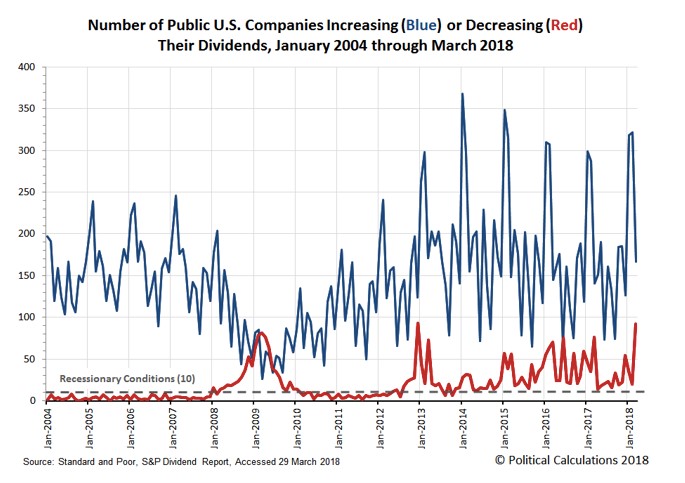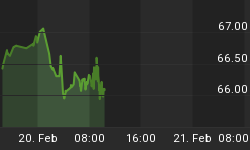U.S. domestic stocks saw a massive net dividend increase of $18.8 billion during the first quarter of 2018 based on S&P Dow Jones indices, with investors receiving over $109 billion on an aggregate basis, and over $8 billion more than Q1 2017, thanks to tax reforms.
That’s a stark contrast to the last quarter of 2017.
Hitting $109.2 billion in aggregate dividend payouts to shareholders—the first trickle-down beneficiaries of the corporate tax cuts—Q1’s record amount surpassed total aggregates paid to shareholders for the same period of 2017 by over $8 billion.
"A rise in both the average and median dividend rate increase for Q1 2018 allowed net indicated dividends to reach a level of momentum not seen since Q1 2012," said Howard Silverblatt, Senior Index Analyst, S&P Dow Jones Indices.
And it wasn’t just bigger dividends, either. More companies were handing them out in Q1 2018, even though the S&P 500 saw an end to its 9 straight quarters of gains, losing 1.2 percent in the first three months of the year.

(Click to enlarge)
The S&P Dow Jones indices recorded 948 dividends increased during the quarter, compared to 881 during Q1 2017, for a 7.6-percent year-over-year increase. At the same time, 167 issues decreased dividends during the most recent quarter.
But, says, Silverblatt, there were no dividend cuts in the S&P 500 for the first quarter—“an event not seen in my history (which started in 2003).”
The average dividend increase within the S&P 500 for Q1 2018 was 13.9 percent, up from 10.4 percent during the previous quarter.
Among the biggest dividend hikers in the first quarter were energy sector companies who had earlier reduced dividends after the mid-2014 oil price crash. Other sector dividend hikes included healthcare, tech and consumer-discretionary.
Related: The Inevitable Collapse Of China's Economy
Some notable companies that raised dividend payouts in Q1 2018 include: Home Depot (1.57 percent quarterly increase announced in February); Best Buy (32 percent); Intel (10 percent); and Boeing (20 percent).
The dividend numbers suggest a stellar year ahead, with Silverblatt suggesting we could see the seventh consecutive year of record payments “given the record cash levels, repatriation and expected record earnings helped by lower tax rates”.
“There is potential for a return to double-digit gains, last seen during 2015,” he said.
And all of it is happening at a time when not even the classic “Dividend Aristocrats” have been able to staunch the negative flow of the market as bulls fear an end to a 9-year run. The last two months have been red, and ‘aristocrats’ who have been upping dividends for at least 25 years are no exception.
But still, just in February, U.S. corporations went on a record spending spree, buying back $153.7 billion in their own outstanding shares, with JPMorgan estimating that that figure will reach over $800 billion by the end of this year.
Apple is expected to repatriate some $245 billion in foreign profits over the coming years, and could use that cash to raise shareholder returns. Others—including Microsoft, GE, Pfizer and IBM—also are high-level repatriation candidates with outsized foreign earnings.
By David Craggen for Safehaven.com
More Top Reads From Safehaven.com:

















